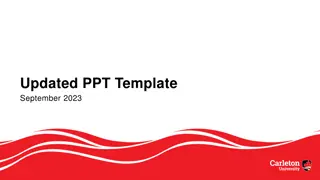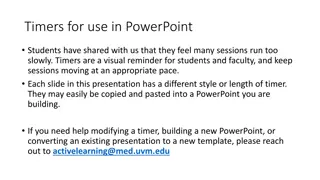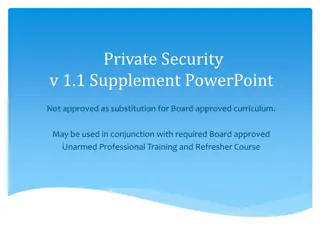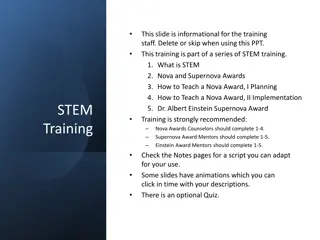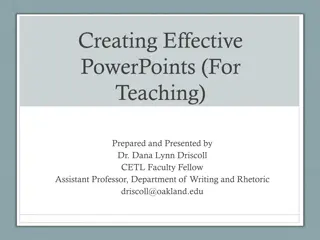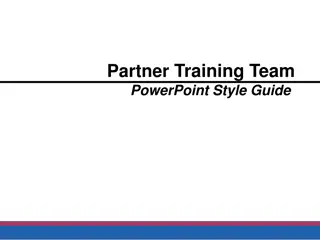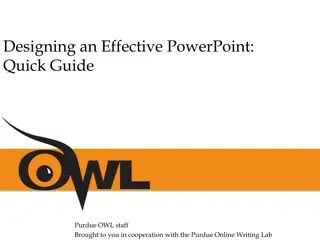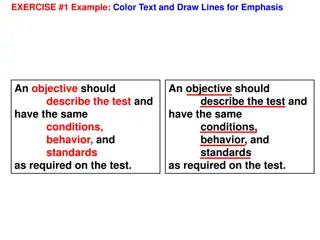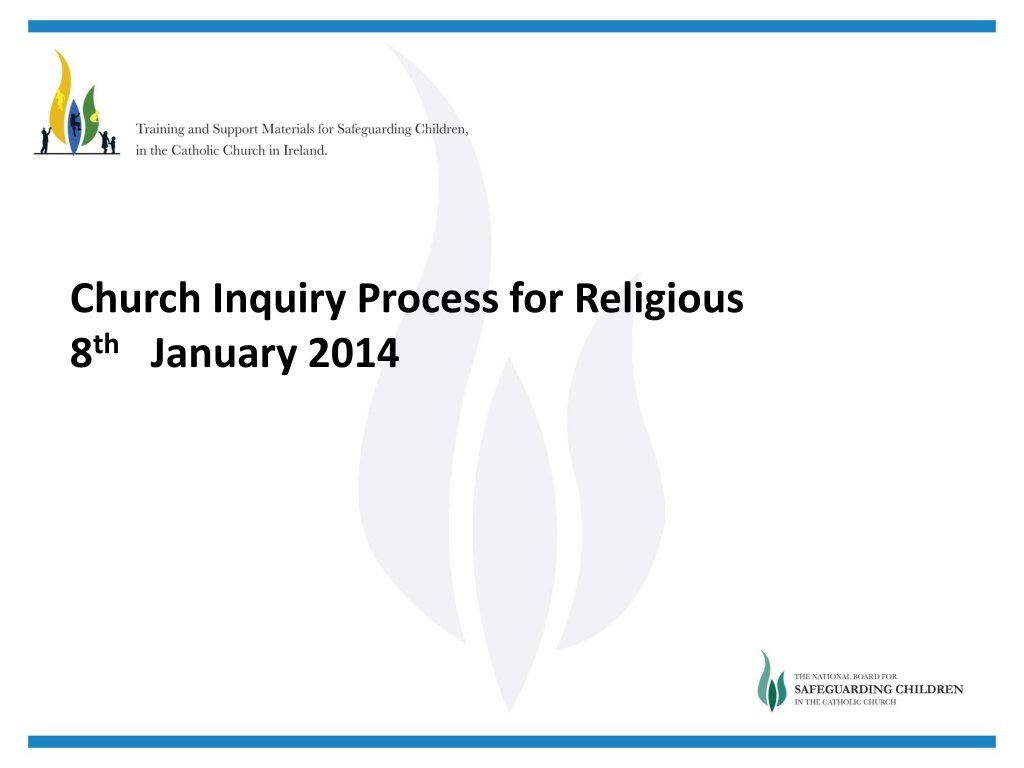
Church Inquiry Process for Religious Rights and Obligations
Explore the fundamental topics around the rights and obligations of religious individuals in the Church, covering aspects such as obedience, chastity, poverty, and prayer. This comprehensive guide delves into the process of inquiry for members of religious orders, outlining their roles and responsibilities within the religious community.
Download Presentation

Please find below an Image/Link to download the presentation.
The content on the website is provided AS IS for your information and personal use only. It may not be sold, licensed, or shared on other websites without obtaining consent from the author. If you encounter any issues during the download, it is possible that the publisher has removed the file from their server.
You are allowed to download the files provided on this website for personal or commercial use, subject to the condition that they are used lawfully. All files are the property of their respective owners.
The content on the website is provided AS IS for your information and personal use only. It may not be sold, licensed, or shared on other websites without obtaining consent from the author.
E N D
Presentation Transcript
Church Inquiry Process for Religious 8th January 2014
Welcome, Introductions and Prayer Colette Stevenson
Aims for the Day To outline the rights and obligations of religious To outline the process of inquiry for a member of a religious order or congregation To identify further training you require in your role.
Structure Setting the Context for the Day Teresa Devlin Outlining Obligations and Rights- Aidan McGrath Pastoral response to complainants-Teresa Devlin Break 11:45-12:00 Process of Inquiry- Aidan McGrath Lunch 13:00-14:00 Process Continued- Aidan McGrath Break- 15:00-15:10 Evaluation Finish 16:00
Setting the Context for the Day Teresa Devlin
Rights and Obligations Aidan McGrath
I. By way of a premise There are members of the Christian faithful from both these groups (lay and cleric) who, through the profession of the evangelical counsels are consecrated to God in their own special way ;although their state does not belong to the hierarchical structure of the Church, it nevertheless belongs to its life and holiness (cf. canon 207 2).
I. By way of a premise Some fundamental rights and obligations: - The obligation of obedience (cf. canon 601); and the relationship to Superiors (cf. canons 608; 620; 622). - The obligationThe obligation to live a life of chastity and celibacy (canons 599, 277). - The obligation to live a life of evangelical poverty (canon 600).
I. By way of a premise The right not to be forced to make a manifestation of conscience (canon 630 5), and the right to silence (canon 1728 2). The obligation and right to live according to the manner and form of life of the institute as set out in the constitutions (canon 662). The first and prime duty of all religious is prayer (canon 663 1).
I. By way of a premise The right and obligation to reside in a house of the institute (canon 665 1). The obligation to observe a certain measure of enclosure within each house (canon 667 1). The right to receive from the institute all that is necessary for one s vocation (canon 670).
I. By way of a premise The obligation to seek and receive permission before assuming external responsibilities (canon 671). The obligation and right to carry out those apostolic activities that are proper to the institute (canon 677 1), but always in communion and in coordination with the local Bishop (canon 678).
I. By way of a premise In general, religious have no right in Canon Law to a specific post or office. Individual religious must be presented before appointment by the diocesan Bishop (canon 682 1) the religious are not free to present themselves. A religious can be removed at the discretion of the appointing authority, or that of the internal authority of the religious institute, with the other authority being informed (canon 682 2).
I. By way of a premise There can be no presumption on the part of any individual of corporate responsibility or vicarious liability: by analogy with canon 639 3: if a religious has entered into a contract without any permission of Superiors, the religious is responsible, not the juridical person . Like all members of the faithful, religious have the right to due process (canon 221 2). Religious (like all the faithful) cannot have penalties inflicted on them, except in accordance with the law (canon 221 3).
I. By way of a premise The appropriate authority within the religious institute is entitled to regulate, in view of the common good, the exercise of rights which are proper to Christ s faithful (canon 223 2). It should be noted that Those things which are established for institutes of consecrated life and their members are equally valid in law for either sex, unless it is otherwise evident from the context of the wording or the nature of the matter (canon 606).
Process of Inquiry Aidan McGrath
II. What is the Superior to do? A preliminary question: is the accused lay or cleric? If cleric, then the Norms for Graviora delicta under the guidance of CDF. If lay, the only process available: the procedures for dismissal canons 694-700.
II. What is the Superior to do? Three forms of dismissal in the Code: a. Automatic: canon 694 b. Obligatory: canon 695 c. Discretionary: canons 696; 697-698
II. What is the Superior to do? Canon 695 1: A member must be dismissed for the delicts mentioned in cann. 1397, 1398, and 1395, unless in the delicts mentioned in can. 1395, 2, the superior decides that dismissal is not completely necessary and that correction of the member, restitution of justice, and reparation of scandal can be resolved sufficiently in another way.
II. What is the Superior to do? Canon 1395 2: A cleric who in another way has committed an offense against the sixth commandment of the Decalogue, if the delict was committed by force or threats or publicly or with a minor below the age of sixteen years, is to be punished with just penalties, not excluding dismissal from the clerical state if the case so warrants.
II. What is the Superior to do? Three purposes of penal law in the Church: The amendment of the member The restoration of justice The reparation of scandal
II. What is the Superior to do? The essential components of the process: 1. Collect the proofs 2. Confront the accused 3. Offer the opportunity for defence 4. Gather all documents 5. Send all to the Supreme Moderator
II. What is the Superior to do? What happens when the Supreme Moderator receives all the documents? The intervention of the Congregation for Institutes of Consecrated Life and Societies of Apostolic Life.
III. Some particular questions a. Advantages and disadvantages of using this process: i. Advantage: no need to wait for Rome to authorise action Disadvantage: no central authority to guarantee evenness of approach iii. Advantage: the role of obedience in this context. ii.
III. Some particular questions b. Standing aside from ministry - No right to a particular ministry - If employment, follow particular protocols - If ecclesiastical office, follow canon 682 2
III. Some particular questions c. Where should such a religious live? In a house of the institute in accordance with canon 665 1 but under conditions.
III. Some particular questions d. What is the status of such a religious? - A member in good standing - Able to fulfil the first and principal duty of a life of prayer and penance (canons 663 1 and 673) - With active (and passive) voice.
III. Some particular questions e. What if the allegation is unfounded? - Reinstatement in ministry - Return to former living situation - The possibility of certain conditions
III. Some particular questions f. If the offence does not measure up to the sexual abuse of a minor? - No crime, no penalty? - But what about the fundamental obligations of consecrated life? Can the behaviour be considered under canon 696?
By way of a conclusion Three purposes of penal law in the Church: The amendment of the member The restoration of justice The reparation of scandal

